G5 Sahel: the borders difficult management.
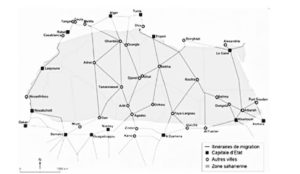
Source : J. Brachet, A. Choplin, O. Pliez, 2011 ; Crédit : http://geoconfluences.ens-lyon.fr, ENS-Lyon / DGESCO
And what if the G5 Sahel countries difficulties were related to their borders management? This impression prevails when one looks at the conclusions of the recent G7 Summit, held in Biarritz, France, from 24 to 26 August 2019. By consensus, German Chancellor Angela Merkel, French President Emmanuel Macron and President Rock Marc Christian Kaboré of Burkina Faso, have called for a redefinition of a « security perimeter », in the face of « the extension of the terrorist threat in the Sahel ».
In others words, the new security commitment would involve, in the G5 Sahel defense efforts, the Gulf of Guinea countries, including Senegal, Côte d’Ivoire and Ghana. Will that be enough, to curtail the terrorist wave that inflicts so much suffering to the Sahel populations?

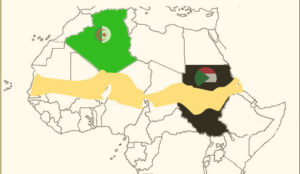 Under popular pressure, both Algeria and Sudan are in turmoil. But there is no compass for direction. In Algeria, what majority will replace the FLN (National Liberation Front) quasi-state? In Sudan, what political or military formation will succeed General Omar Hassan El Bashir semi-Islamist regime? In addition to domestic changes, these momentous upheavals will have impacts on the Maghreb region and also elsewhere, especially in the Sahel!
Under popular pressure, both Algeria and Sudan are in turmoil. But there is no compass for direction. In Algeria, what majority will replace the FLN (National Liberation Front) quasi-state? In Sudan, what political or military formation will succeed General Omar Hassan El Bashir semi-Islamist regime? In addition to domestic changes, these momentous upheavals will have impacts on the Maghreb region and also elsewhere, especially in the Sahel!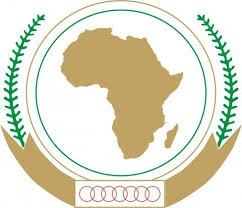 One week after the Ecowas Summit held in Abuja, Nigeria, the African Union should convene its annual Summit in Niamey, Niger, on 5 July. Presently, few other places could be more appropriate for this gathering than that capital located in the Sahel’s core. A Sahel that is often ‘’either a bond, a corridor or a barrier’’.
One week after the Ecowas Summit held in Abuja, Nigeria, the African Union should convene its annual Summit in Niamey, Niger, on 5 July. Presently, few other places could be more appropriate for this gathering than that capital located in the Sahel’s core. A Sahel that is often ‘’either a bond, a corridor or a barrier’’.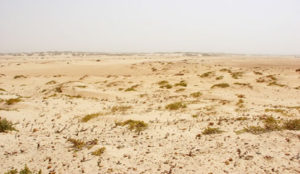 April, May and June are the Sahel hot and harsh months. The harmattan wind runs during the seasonal transition between the leniency of the first quarter and the heat of the second. These climate cycles, the political developments in Algeria and Sudan as well as insecurity in the Sahel heart, fuel the opinions of the often frustrated but increasingly connected populations.
April, May and June are the Sahel hot and harsh months. The harmattan wind runs during the seasonal transition between the leniency of the first quarter and the heat of the second. These climate cycles, the political developments in Algeria and Sudan as well as insecurity in the Sahel heart, fuel the opinions of the often frustrated but increasingly connected populations.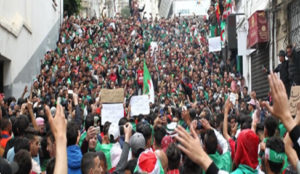 Every week since February there have been peaceful mass gatherings calling for change in Algeria. The population wishes to see their country live up to its historic reputation for liberty and independence from colonialism. While many have interpreted the protests as a continuation of the “Arab Spring,” Algeria is the only Arab country to have attempted a democratization experiment as far back as the 1990s. The current revolt, now in its ninth week, was thus in some sense predictable given Algeria’s history, while also unprecedented, hopeful, and complicated.
Every week since February there have been peaceful mass gatherings calling for change in Algeria. The population wishes to see their country live up to its historic reputation for liberty and independence from colonialism. While many have interpreted the protests as a continuation of the “Arab Spring,” Algeria is the only Arab country to have attempted a democratization experiment as far back as the 1990s. The current revolt, now in its ninth week, was thus in some sense predictable given Algeria’s history, while also unprecedented, hopeful, and complicated.